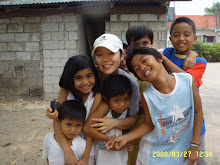
What is the mood of this novel? Do you find this novel saddens you in any way? Why?
The mood of this novel was sad, depressing and despairing with violence with a faint glimmer of hope. It saddens me in a way because the fact that in the future in this book, books will be for burning along with the houses in which they were hidden. How Mrs.Bowels(one if Mildred's friends) talked about books however, angered me but had an acceptable reason. She said "Silly words, silly words, silly awful hurting words. Why do people want to hurt people? Not enough hurt in the world, you got to tease people with stuff like that!" True, in these kinds of circumstances, Mrs.Bowels might have been right, but that didn't necessarily mean that all books contained words that hurt people.
I felt sadness and depression in some parts of the novel especially the poem that Montag read to the ladies. It went like this...
"'The Sea of faith
Was once,too, at the full, and round earth's shore
Lay like the folds of a bright girdle furled.
But now I only hear
Its melancholy, long, withdrawing roar,
Retreating, to the breath
Of the night-wind, down the vast edges drear
And naked shingles of the world.'"
The chairs creaked under the three women, Montag finished it out;
"'Ah, love, let us be true
To one another! for the world, which seems
To lie before us like a land of dreams,
So various, so beautiful, so new,
Hath really neither joy, nor love, nor light,
Nor certitude, nor peace, nor help for pain;
And we are here as on a darkling plain
Swept with confused alarms of struggle and flight,
Where ignorant armies clash by night.'"
In my opinion, this poem felt so melancholy and depressing and sounded rather pessimistic. This poem felt like it was describing the current situations especially the part 'But now I only hear its melancholy, long, withdrawing roar, retreating, to the breath of the night-wind, down the vast edges drear'. The melancholy, long, withdrawing roar could be the books being forcefully burnt and the retreating, to the breath of the night-wind, down the vast edges drear could be the people who once loved books and their long for books retreating and being ignored because of the people's lack of courage and the fear to speak up and stand up for whatever the consequences may be.
Towards the end, the story mentioned hope when Montag was successful in running away from the mechanical hound and from the government. It gave me, as a reader that what books contained would not be easily forgotten even with all the violation in the world.
